No sooner had I reached the chain-up pull-out outside of Bezanson, I wrote in log 103, than a pickup truck stopped in front of me and a woman and a kid climbed out. Jenn and Vaughn invited me to their farm for dinner and to spend the night, and I said back in August I’d write ‘more on that later.’
I’m still hesitating at what to say because while that night on the edge of Alberta was at first glance entirely simple, it feels inexplicably complex. There’s something I want to say about it that I’m worried I won’t have the words to express.
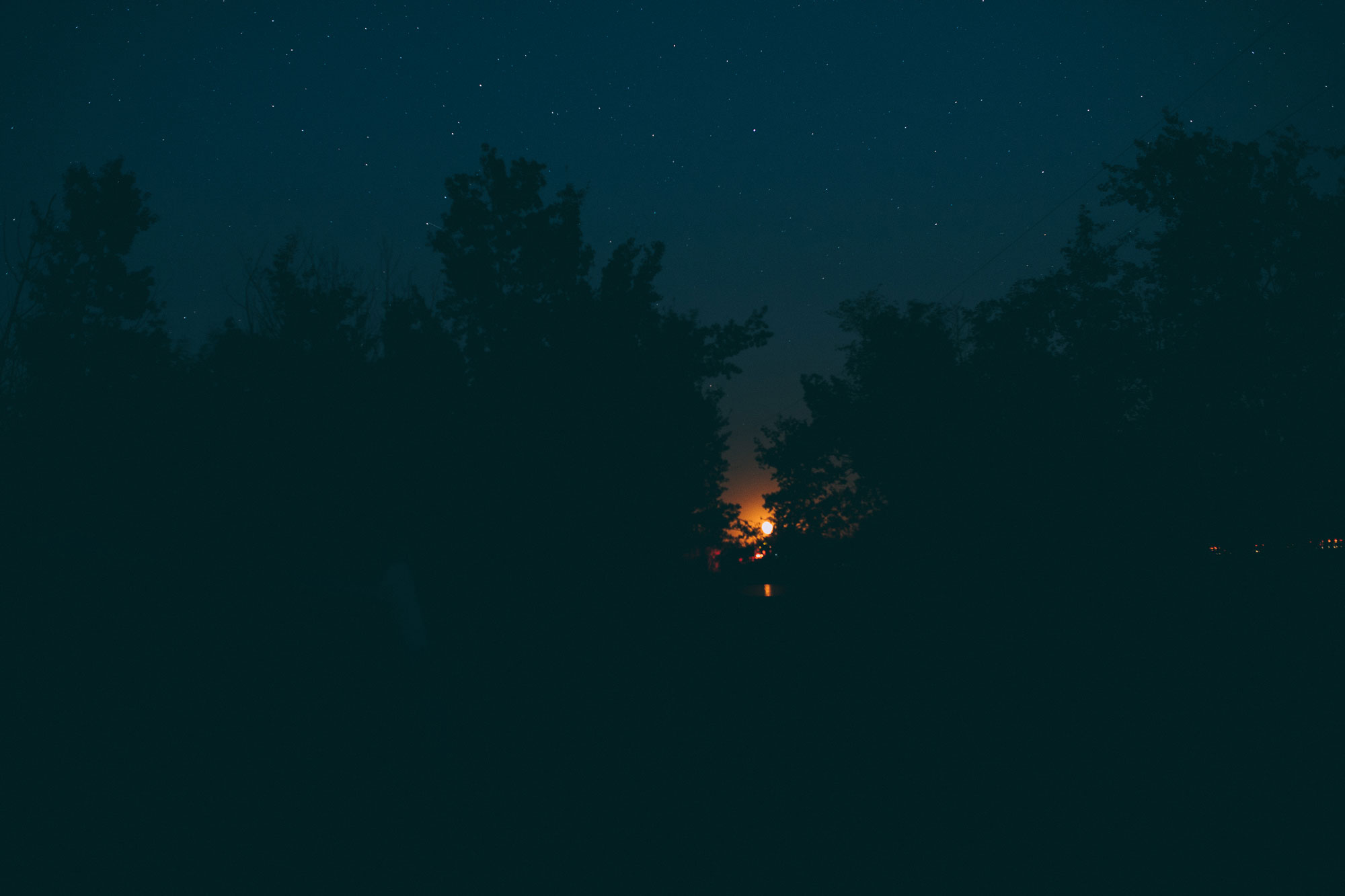
It started to get dark almost as soon as I got to their place. Vaughn and I climbed onto the flatbed of their pickup truck to watch the moon rise between the trees. Back inside, I sort of jumped from conversations with Jenn and her husband, Terry, about off-road ATVs, oil rigs and the best places for hunting; and with Vaughn about soccer, school concerts and how early in the year he could go swimming in the waterhole. They had the kind of relaxed DIY hospitality that characterizes a lot of small towns across Canada. “Make yourself at home,” I was told. “If you need something, help yourself.”
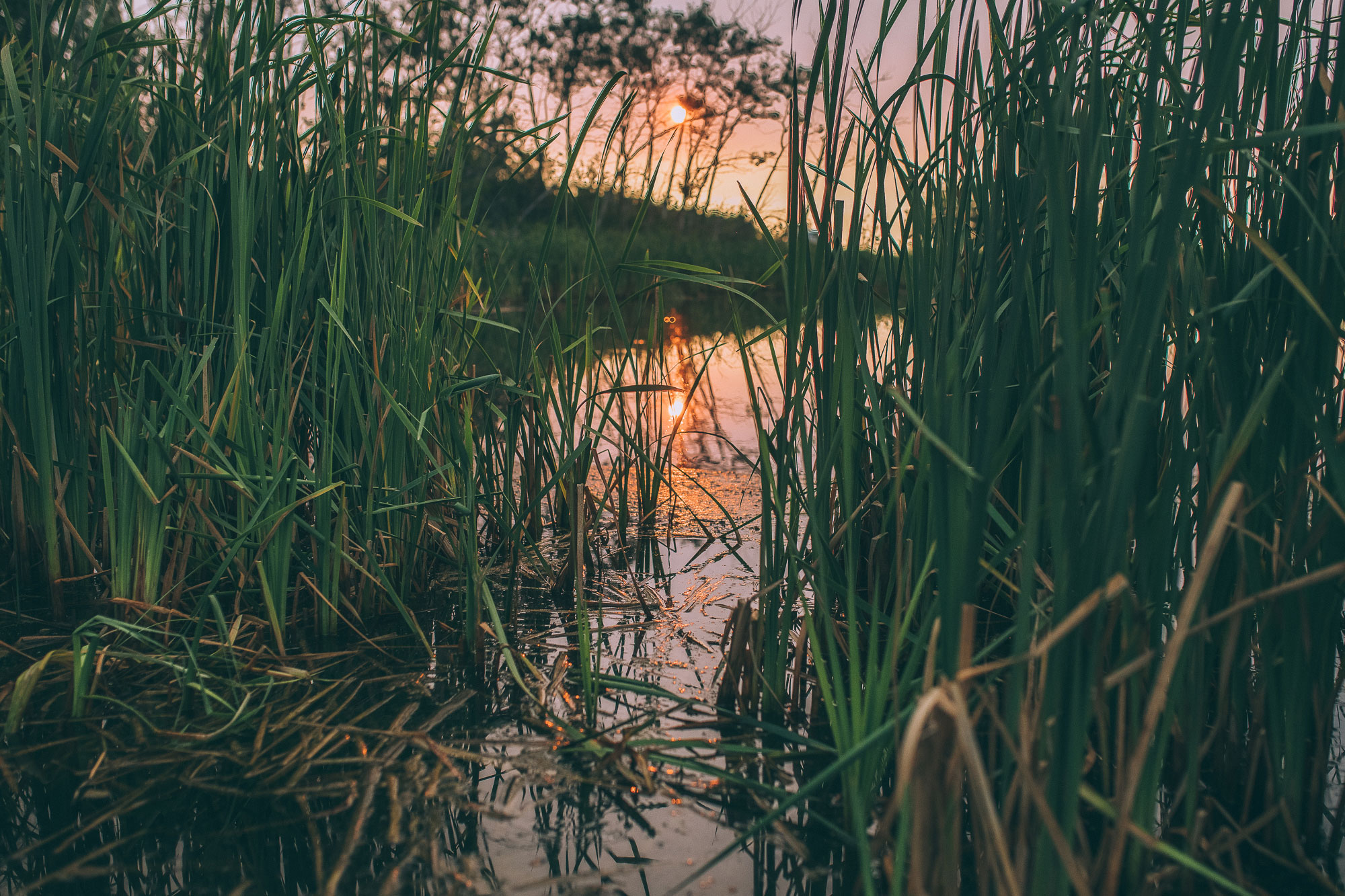
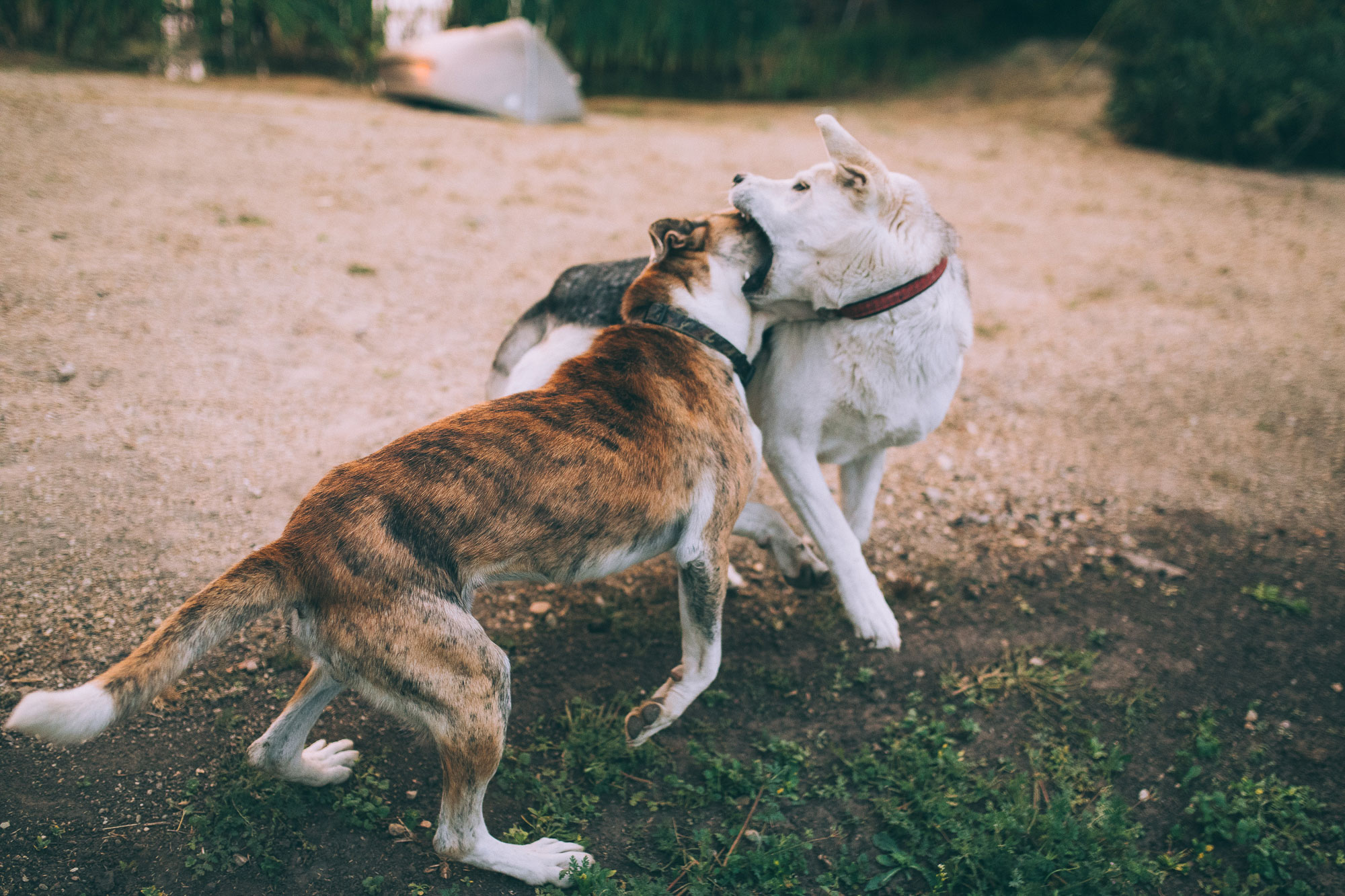
The morning came late. I rose with the sun, but through the haze of British Columbian wildfire smoke it was like the sun hadn’t realized that it had risen. The air was still and orange, a soft brightness that turned to a light August grey. Vaughn did his chores. We picked vegetables for me to take on the road and did flips off the swingset. He showed me his soccer ball. Terry cooked their own pork for breakfast and Jenn offered to give me a ride to make it to Dawson Creek in time for the rodeo.
It all sounds very simple, and that was my worry at the start of writing this. They were friendly and kind and that farmstead on Highway 43 holds a special place in my memory.
But there’s more to that memory than hospitality. I learned something.
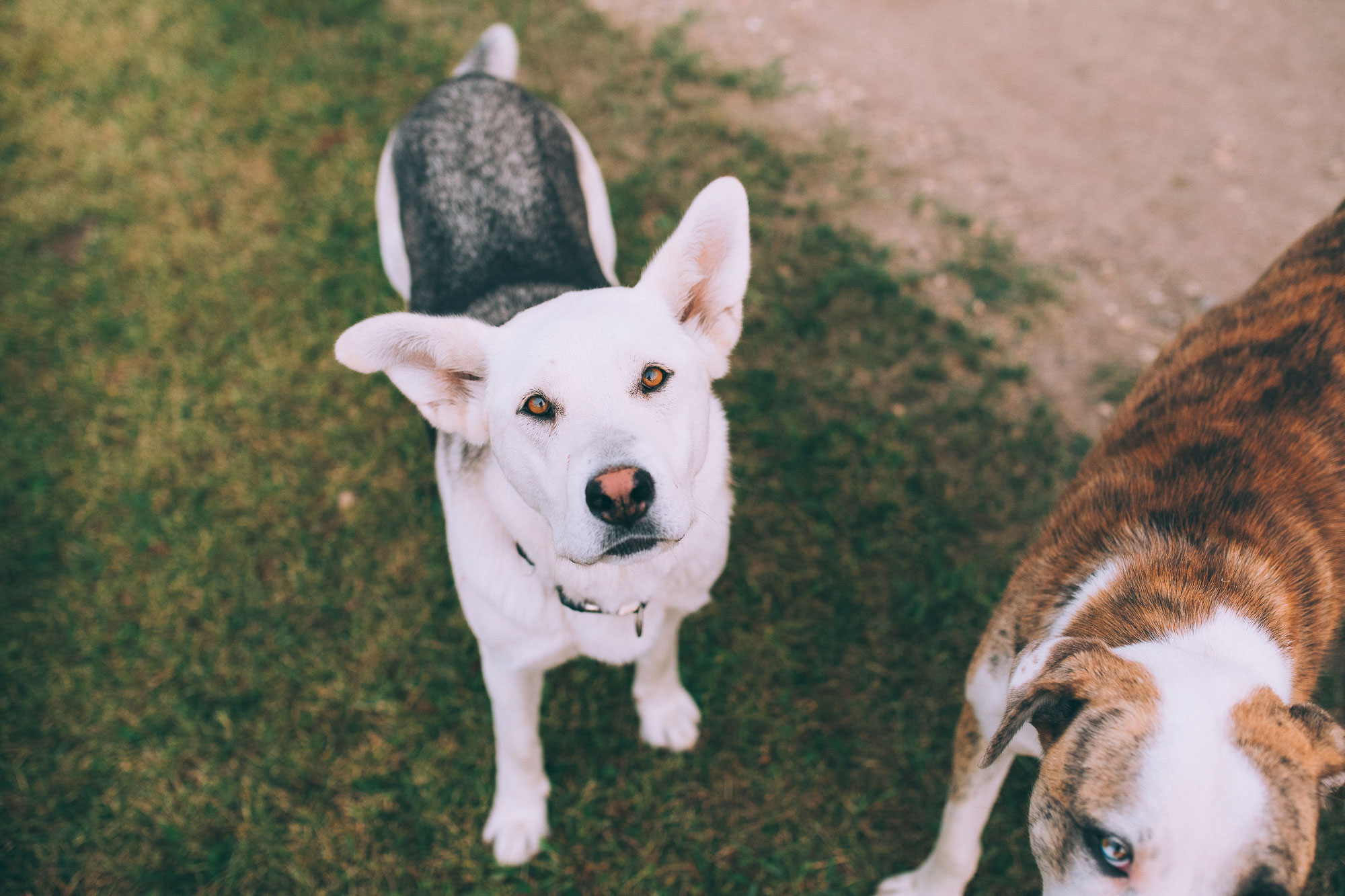
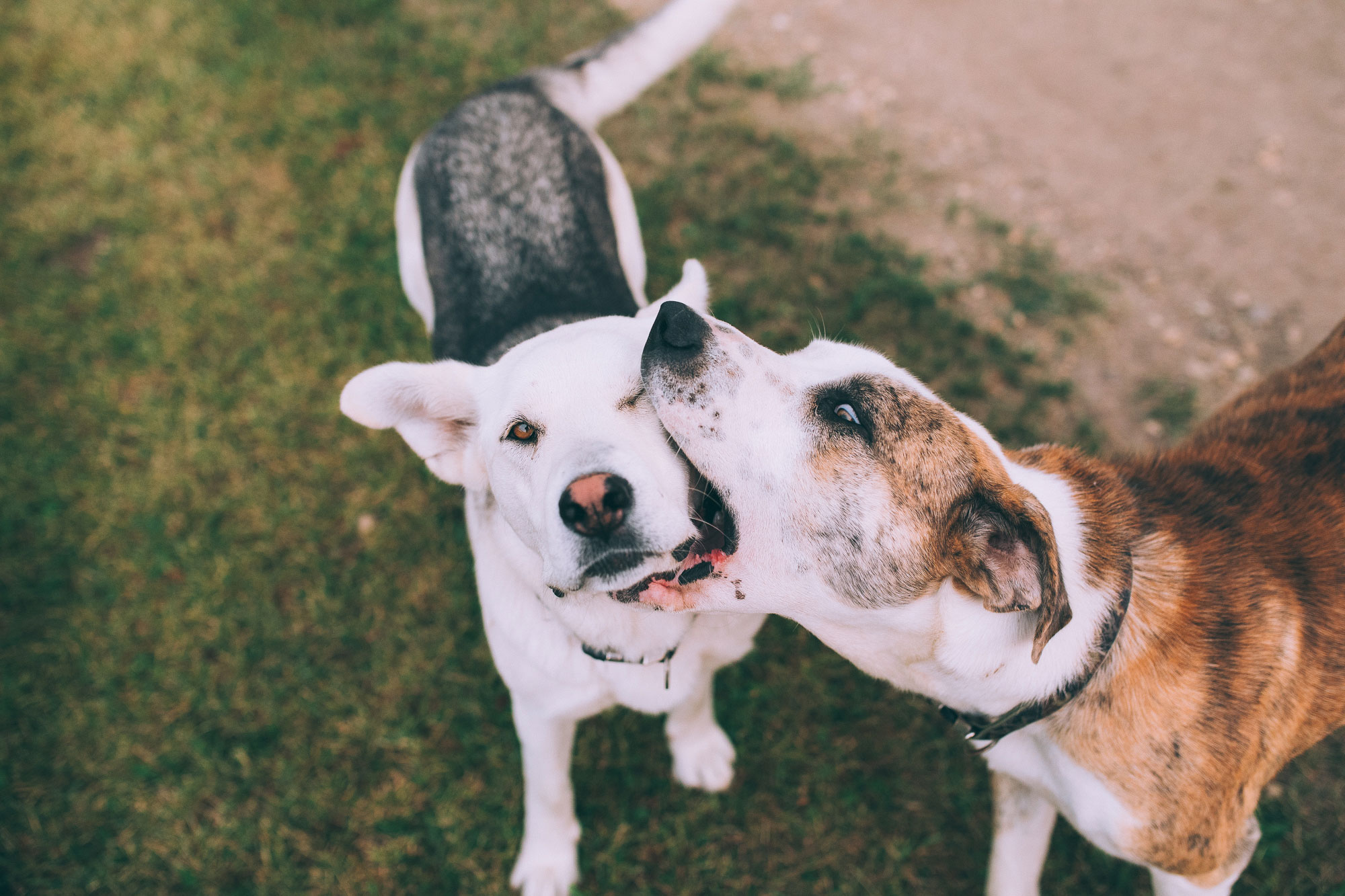
Terry was an oil worker. I forget his exact job but he worked on the physical installation of pumpjacks in different parts of Alberta. I think he worked on the oilpatch occasionally too, but he preferred to be closer to his family.
Now, I’ve had friends and friends’ parents who worked in the oil industry. All throughout the eastern portion of the bike route, especially in Newfoundland, I heard about young people relocating to Alberta to work in oil. I knew, logically, that oil workers were everyday Canadian citizens just like myself. It sounds dumb to say.
But I’ve been involved in climate activism for years, and climate-based anti-fossil fuels rhetoric pervades a lot of the way I look at Canada, at Alberta and at those everyday oil workers. So my experience with Terry was like meeting the trucker on the coast of Lake Superior. Suddenly there was a face to go with the name. And not just that, there was the taste of bacon, the soft gleam of a polished rifle, the feeling of a warm place to sleep and the sound of his son’s laughter. Suddenly there was humanity.
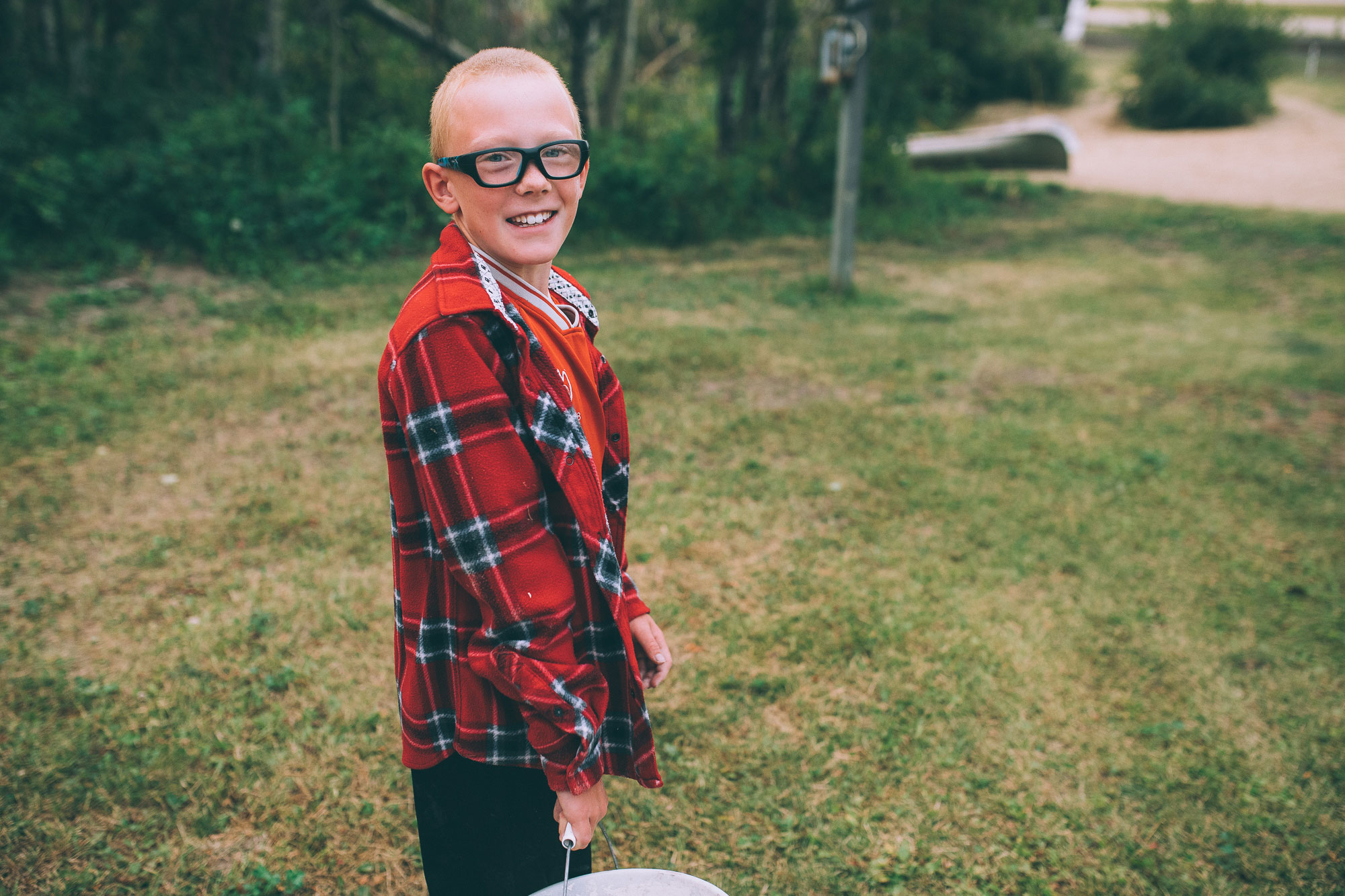
I think they could feel it too, although we didn’t talk about it much.
“You’re not really my kind of person,” Jenn told me while the night air settled in around the house. “You’re…” she waved her hands above the table, “icky.” We both knew that the word didn’t quite fit, but I told her I knew what she meant. “But you are my kind of person, because you’re, you’re Vicky.” Vicky was a photographer in Vancouver that Jenn was friends with.
“And we can,” she tapped on her wine glass and breathed the air coming in through the open door, “we can still be here.”
Then something happened, I can’t remember what, and she went outside, and that conversation was over. I felt too shy to bring it up again, and I never said how much I appreciated and felt her authenticity. She was right. In so many ways we belonged to as different worlds as you could get. We didn’t talk about the things we might have disagreed on, but I’m sure we could have found them if we had tried. Instead, we talked about the present, and we looked for things that we shared.
Do you see how this is simple and complex at the same time? We were different, but when we started looking for commonality, we found lots of it. Small town school. A soccer ball. Horses. ATVs. Local food. Family. Caring. Belonging. I could tell you a hundred things we had in common, because that’s what we found.
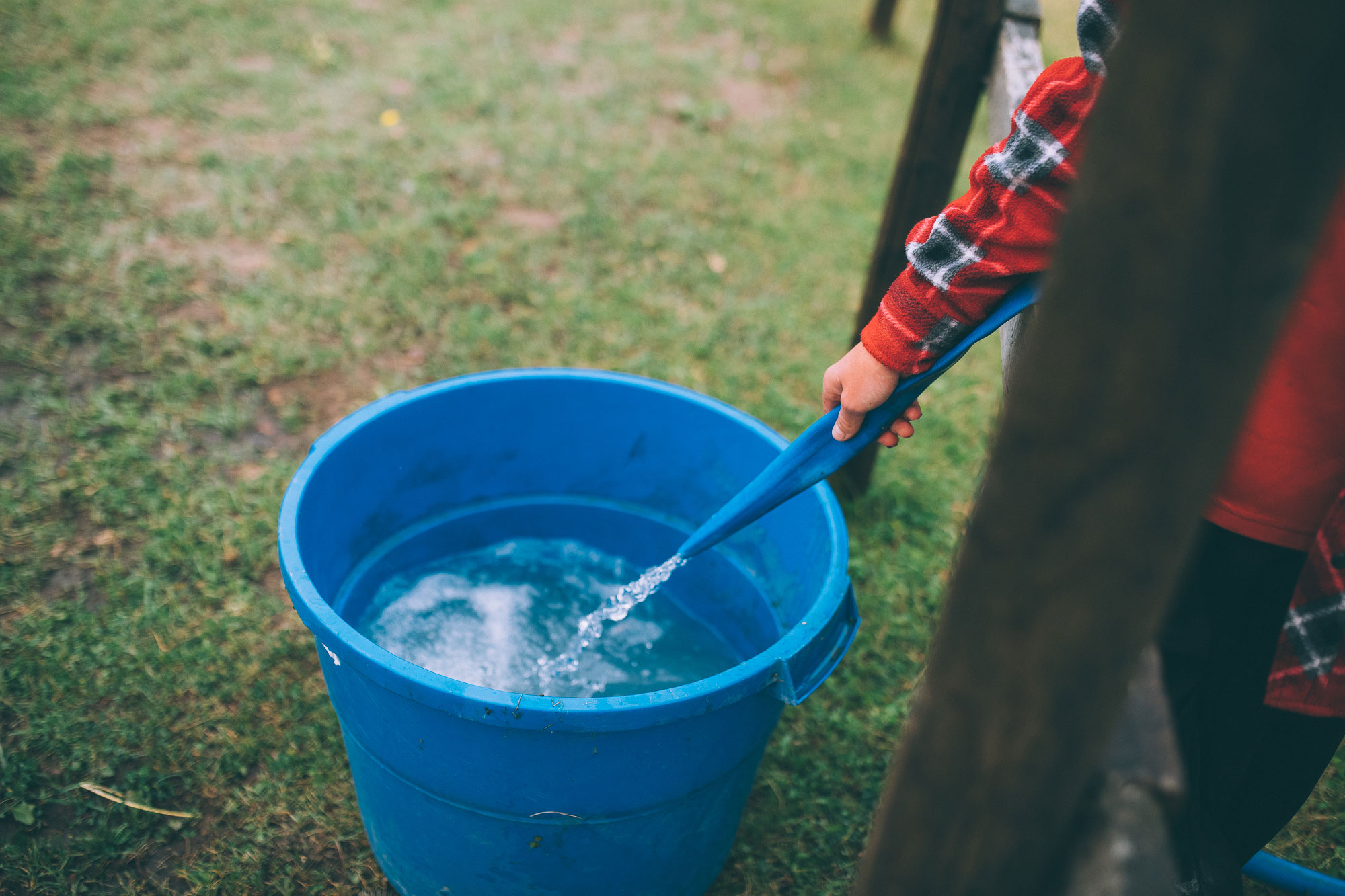
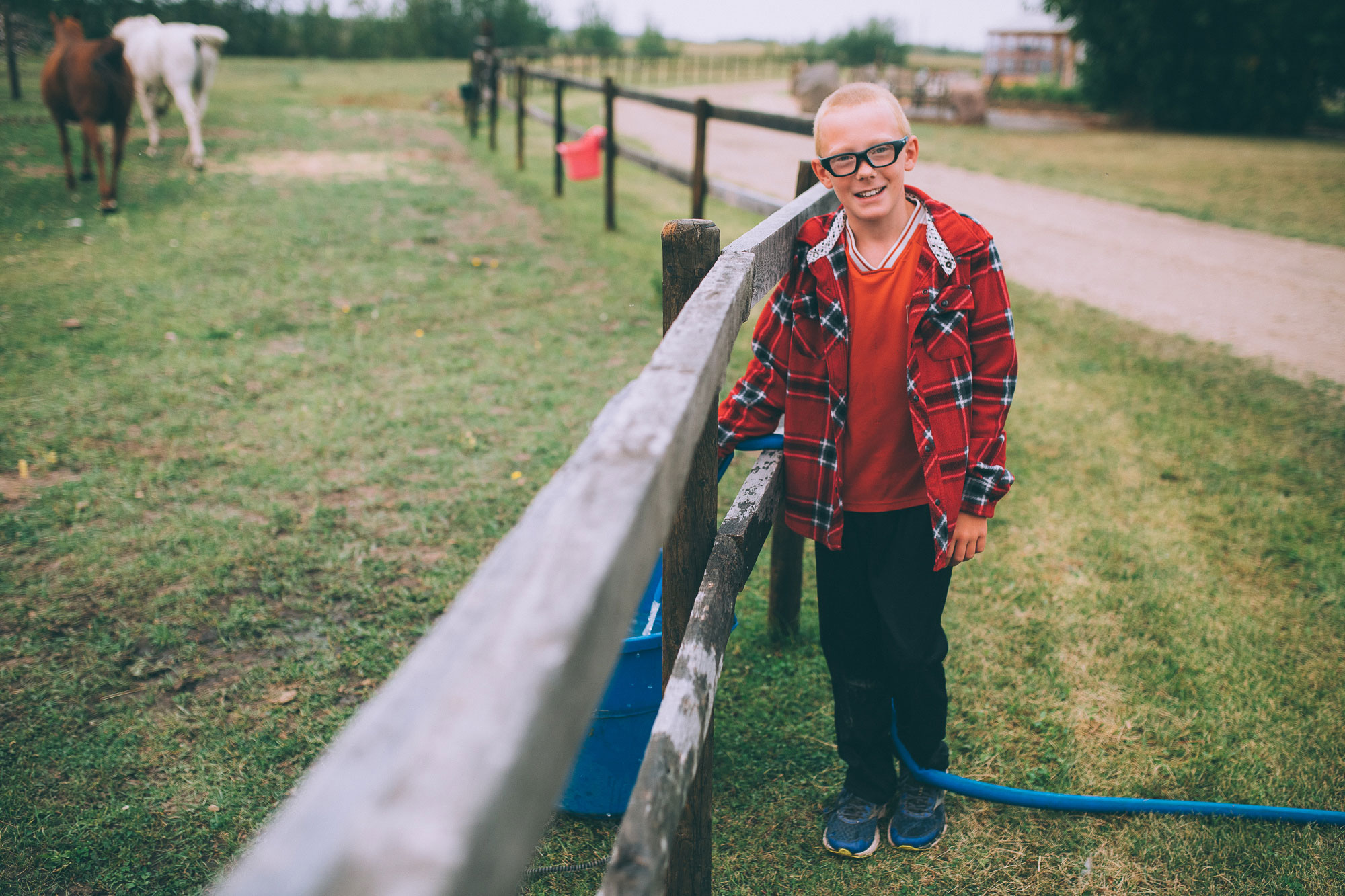
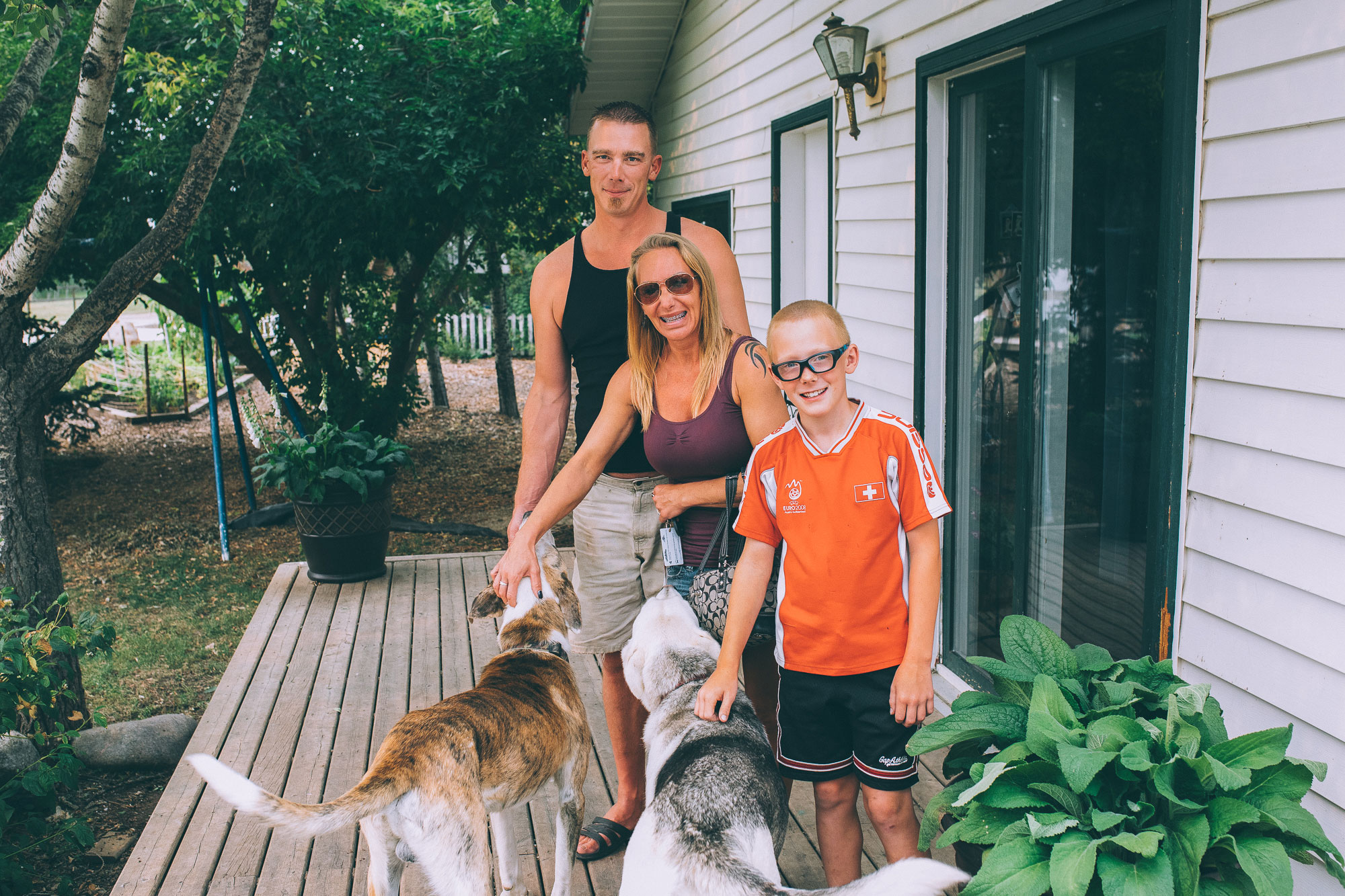
My point is no one is two-dimensional. Not an oil worker in rural Alberta, not a Gore-Tex cyclist on the highway. And as different as we all are, we’ll find that we have a lot things in common than we do things that set us apart. We only have to look. That’s my point. I still feel like I’m not doing this lesson justice, but I’ve done my best.
Well, I left Bezanson that morning, and that was it. My footprints lingered in the dust, their son remembered me for a while; but it wasn’t my place. I cycled on with gratitude and fresh vegetables, but I still cycled on.
I can tell you, though, the person that arrived in that small town on the edge of Alberta was not quite the same person who left.